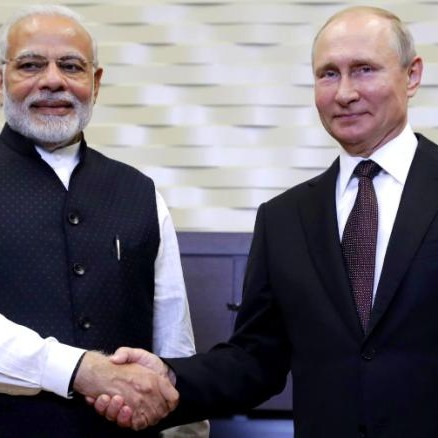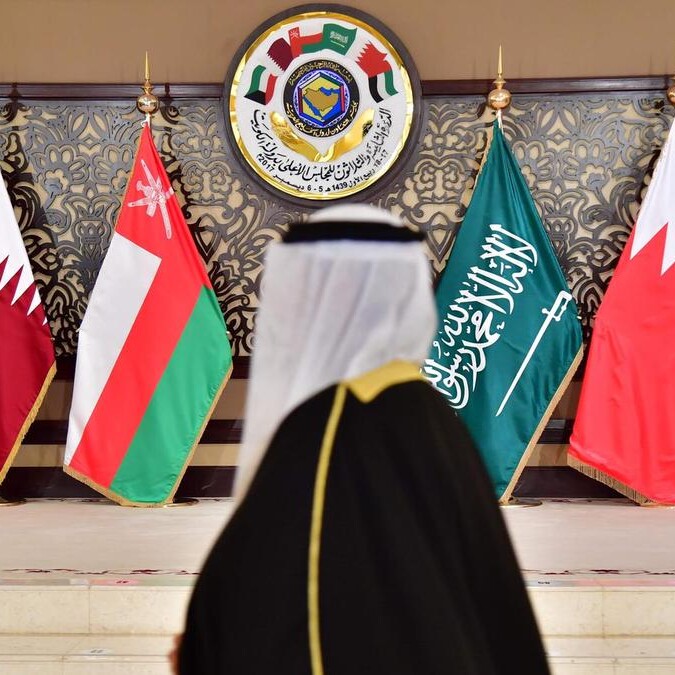The rocky partnership between Russia and Iran in the Syrian conflict is entering a turbulent period. The unprecedented US-Russia-Israel security summit due to take place in Jerusalem has no other explanation.
A tersely worded White House statement on May 29 said that the summit, which will be attended by the national security advisors of the US and Russia – John Bolton and Nikolai Patrushev – will discuss regional security issues. The Israeli media expect that the focus will be on Syria – Iran and “other destabilizing actors.”
Out of the two competing narratives regarding Russian-Iranian cooperation in Syria – one, that Russia and Iran are time-tested allies who smashed the West’s geopolitical conspiracies over Syria, and, two, the contrarian view that their alliance is but a marriage of convenience – the latter seems to be gaining ground. The great game theorists and acolytes of Eurasianism will be disappointed.
Israel insists that Iranian forces must leave all of Syria. So far, the Russian position has been that Iranian involvement in Syria is legitimate under international law and it is unrealistic to expect Iran to abandon its self-interests.
Clashes reported
However, reports began appearing lately that a stand-off between Russian soldiers and Iran-backed militias in the northern Syrian city of Aleppo was casting shadows.
Details are murky. The Syrian Observatory for Human Rights, based in London, said fighting may have been triggered over competition for control of city checkpoints, which brings in a lot of money for forces on the ground.
A second interpretation is that the stand-off followed recent Israeli airstrikes near Aleppo, which some Iran-backed militias suspect to have been with Russian involvement through coordination with Tel Aviv.
At any rate, Voice of America reported on May 27 that Russian military police carried out a raid against Iranian-backed militiamen stationed at Aleppo international airport and that “in the aftermath, several Iranian militia leaders were arrested.”
VOA highlighted the fact that the victors in the Syrian conflict were now turning against each other in a scramble for the spoils of war.
The Russian-Iranian rift also resonates in an extraordinary report on May 27 in the Moscow daily Nezavisimaya Gazeta, which has links with the Russian establishment, that Iran was equipping a military port, Baniyas, near the Russian bases in Latakia on Syria’s Eastern Mediterranean coast.
An unnamed diplomatic source told the daily: “Iran’s activity near Banias may have a destabilizing effect not only for the region, but also for the (Russian) forces, which are trying to stabilize this region. It’s important to have a closer look at what is going on around the port because in the future it may become Iran’s military base near the Mediterranean Sea.”

The report added: “Iran’s access to the Mediterranean Sea deprives Russia of its monopoly on economic presence in Syria’s coastal areas and creates certain security risks. The territorial proximity of Iranian facilities, regardless of their purpose, may not only technically complicate life for Russian servicemen, but also put them under surveillance.
“However, it is difficult to stop Damascus from maintaining close contacts with Tehran, which granted Syria loans estimated at between US$6 billion and $8 billion during all the years of the civil war.”
The Banias Oil Terminal connects through pipeline the great Iraqi oil fields of Kirkuk.
The daily concluded that “Russia is concerned that Iran seeks to do the same thing in Syria as it did in Lebanon, namely to create a force similar to Hezbollah, despite Moscow’s effort to restore the Syrian state.”
Unannounced trip
What is going on? Moscow seems to co-relate Iran’s conduct in Syria with Russia’s support for Iran in its stand-off with the US over the nuclear issue. Thus, on May 28, Russian Deputy Foreign Minister Sergei Ryabkov made an unannounced trip to Tehran to discuss the Iran nuclear deal.
Upon his return to Moscow, in an interview with the government daily Rossiyiskaya Gazeta, Ryabkov sternly warned Tehran against “reckless steps” in regard to the 2015 nuclear deal.
Ryabkov said: “We also cautioned the Iranian side against withdrawing from the Non-Proliferation Treaty, which would represent a qualitatively new step in the direction of destabilization … Russia’s position includes an element of cautioning Iranians from reckless steps.”
No doubt, these sharp remarks, publicly made, imply a stern warning that Moscow’s support to Tehran in its stand-off with the US was conditional. Arguably, Moscow may have decided that it is advantageous at this point to distance itself from Tehran – and also to let world capitals know about it.
Coincidence or not, the White House announced the scheduling of the unprecedented trilateral US-Russia-Israel security summit no sooner than Ryabkov returned from Tehran.
What does Moscow want?
What does Russia hope to gain out of the forthcoming trilateral summit in Jerusalem? Quite obviously, Moscow hopes to cash in on Israel’s leverage over Bolton to improve US-Russia relations, which are languishing.
To be sure, Moscow is aware of Bolton’s hawkish views on Iran and will expect a reciprocal gesture from him too in a theater of the highest importance to the Kremlin – Ukraine. Of course, it so happens that new Ukrainian president Volodymyr Zelensky is a Jew and the Ukrainian oligarch Igor Kolomoisky has been living in exile in Israel.
In summary, the pantomime of the trilateral security summit in Jerusalem can be a ‘win-win’ for Russia. If Bolton cooperates, some of the pending issues in Russian-American relations can be brought to the negotiating table at last.
Indeed, if Washington does not act as a spoiler, the Kremlin is cautiously optimistic it can mend fences with Kiev.
The bottom line is that Moscow is wary of getting sucked into Iran’s “resistance” politics in Syria. Whereas Iran considers its cooperation with Russia in Syria – and the Middle East in general – as a means to consolidate its new role as a regional power. For Moscow, Israel is a special case for its Middle Eastern policies.
The Russian strategy to keep Iran in its orbit and use it as a bargaining chip to cultivate Sunni Arab states has exhausted itself. Meanwhile, Israel has overcome its isolation in the Arab world, thanks to its confrontation with Iran as well as the attraction that Israeli technological capability holds for the Arab states.
Russia has diverse ties with Israel – and Netanyahu has ensured that contradictions in their regional interests do not get exacerbated. Suffice to say, Russia seeks a Syrian settlement in coordination with the US and Israel as an imperative need. The Russian domestic opinion takes a dim view of continued entanglement in Syria.
However, do not expect Russia to burn all its bridges with Iran with which it has wide-ranging cooperation in Syria and the Middle East, the Caspian, Afghanistan, etc. The Russian predicament boils down to this: It will not challenge the US sanctions against Iran, but a US-Iranian military confrontation will put it in a tight spot, while on the contrary, it may end up a loser in a US-Iranian direct engagement leading to Iran’s integration with the West, something that Tehran elites always sought.
This is a conundrum because Iran will press ahead with the creation of a militia force in Syria that functions like Hezbollah in Lebanon to extend its deterrence power – and in the final analysis, Russia does not belong to the ecology of the Muslim Middle East.
The clock is ticking. Iran cannot be stopped in its tracks unless sanctions are lifted and it is allowed to live as a normal country. But that’s not in Russian hands. As Dennis Ross wrote this week: “This would require Trump to decide how much he is prepared to give up.”
By M.K. BHADRAKUMAR, Asia Times
Photo: Kremlin, Twitter
Redazione
La redazione di Babilon è composta da giovani giornalisti, analisti e ricercatori attenti alle dinamiche mondiali. Il nostro obiettivo è rendere più comprensibile la geopolitica a tutti i tipi di lettori.
Il potere cinese sui fiumi tibetani
16 Apr 2025
Il fiume Brahmaputra, arteria vitale pulsante nel cuore dell'Asia, rappresenta molto più di una semplice massa d'acqua…
Russia-India: un partenariato resiliente
3 Apr 2025
Le relazioni tra India e Russia affondano le radici in una lunga storia di cooperazione strategica, caratterizzata da…
Venezuela, che fine ha fatto il cooperante italiano Trentini?
12 Mar 2025
Ne parla il libro di Paesi Edizioni Intanto a Caracas, nuovo saggio sulla crisi del Venezuela di Maurizio Stefanini:…
Come fare impresa nel Golfo
16 Ott 2024
Come aprire una società in Arabia Saudita? Quali sono le leggi specifiche che regolano il business nel Paese del Golfo…




